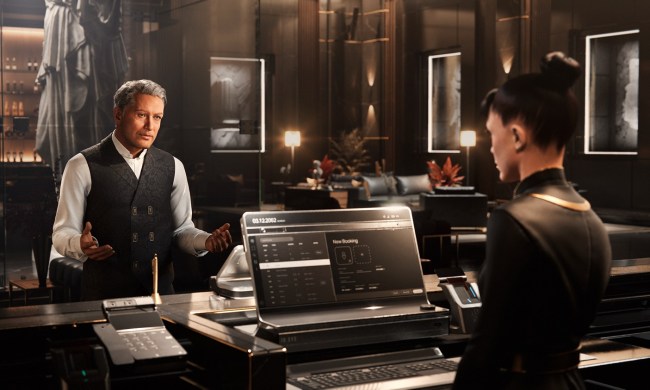
Nvidia wants to succeed at cloud-based gaming in a way that OnLive never could. Think Netflix, but with video games instead of B movies and cancelled television shows. Clearly a star player, the Grid took a lead spot in the presentation, enjoying some precious time in the limelight.
Nvidia treated viewers to a demo of Trine 2 on LG’s 4K TV. Giving kudos to Nvidia, the game looked incredible and carried over seamlessly between a few different devices using the Nvidia Grid app. Wherever the player saved a game on one device, it was picked up from the exact same spot on another, much like how you can resume a Netflix video where you left off from any device. The software seems to work much the same as Netflix’s progress syncing. The hardware is no slouch either, Nvidia says the GPU tower basically combines the power of “700 Xbox 360s” into a single unit.
Nvidia plans to license the Grid software to various companies based both in the U.S. and abroad. In theory, the Grid sounds like the best thing since sliced bread. However, streaming video games isn’t exactly easy for the majority of the world still running on metered data connections. It will be interesting to see how that specific issue will be addressed, if at all.
With competitors like OnLive and Gaikai already in the game, Nvidia definitely has some catching up to do. During demonstrations, the Grid seems groundbreaking, but who knows if its exciting first impression will translate into any real-world success. We will definitely be investigating further as CES continues.


